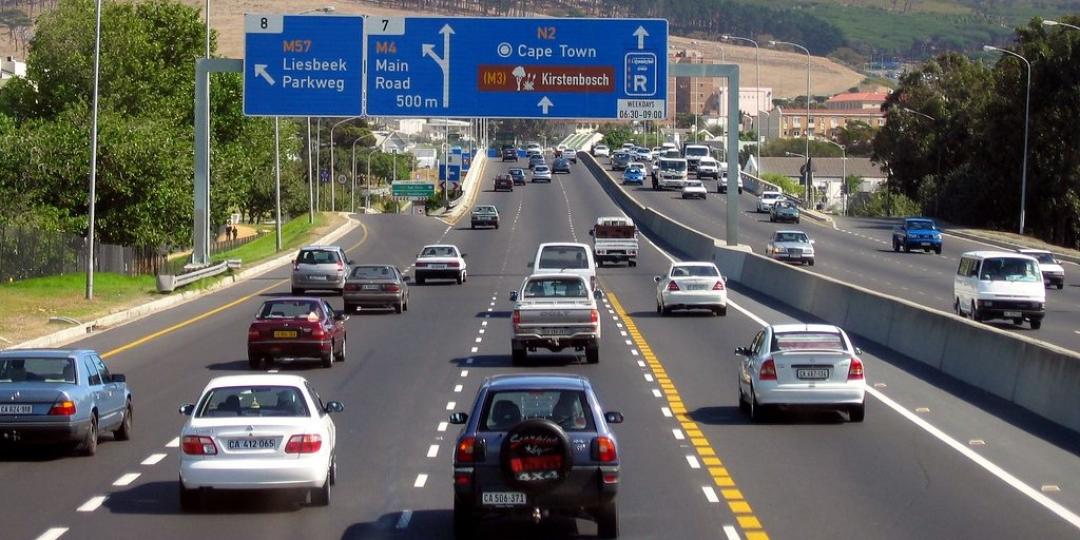As the SA National Taxi Council (Santaco) strike entered its fifth day in Cape Town – with sporadic incidents of violence, including on the N2 highway – tourism stakeholders have been working together to share on-the-ground up-to-date advice to help smooth the way for fellow operators travelling to and from Cape Town International Airport today (Monday, August 7).
Numerous roads were closed, which caused traffic delays. “We are working to resolve these closures and ensure safe passage for commuters,” said police Spokesperson, Brigadier Novela Potelwa
“Police deployments, along with the City of Cape Town’s metro police‚ law enforcement and traffic services are deployed at identified hotspots. Additional forces including air support are en route to a locations where traffic interruptions and other incidents have been reported‚” Potelwa said.
Premier of the Western Cape, Alan Winde, has called for an urgent resolution to the dispute. Santaco has said it is continuing with the strike after talks were initiated to resolve the impasse.
To date, according to the City of Cape Town’s Mayoral Committee member for Safety and Security, JP Smith, around 30 arrests have been made.
Industry WhatsApp groups active
Meanwhile, SATSA’s industry WhatsApp groups have been highly active. “Our members have been actively helping each other navigate these disruptions to limit the impact on guests, who are arriving and departing on domestic and international flights.
“However, while we have an excellent community of stakeholders who are mitigating the impact on travellers, we are not immune as a destination to the longer-term impacts of such a strike and resulting acts of violence,” said Oupa Pilane, SATSA Chair.
“It is a great pity that Capetonians and visiting tourists must endure this disturbance. For tourism, however, the implications are far greater than a short-term inconvenience and safety implications for guests and staff, to whom we are deeply thankful for making every effort to keep the tourism industry functioning, despite the challenges they face.”
In the medium to long term, it was particularly damaging from a destination reputation perspective, highlighted Pilane. Illustrating this, the UK Government has already issued an advisory about the strikes, warning travellers about the disruption and violence.
“When one considers that just a few weeks ago Cape Town was listed the #1 city in the world by the Telegraph Travel Awards, this kind of behaviour does tourism and its ability to contribute to the economy and job creation no favours.”
‘Business as usual’
SATSA members operating in Cape Town report that it is business as usual. “The tourism industry is incredibly resilient and used to dealing with crises. As usual, we will handle this one professionally and do everything we can to ensure that our guests’ experience is as smooth and safe as possible so that they have an exceptional stay in the Mother City, return and tell others of their positive experience,” Pilane noted.
Hospitality association, FEDHASA has strongly condemned the violence and intimidation caused by the taxi strike in and around Cape Town.
Lee-Anne Singer, FEDHASA Cape Chair, pointed out that while the organisation supported the right to peaceful protest, it was deeply concerned about the significant disturbance the strike had caused for guests and staff, creating logistical challenges for employees working long hours and late shifts.
“As an industry, hospitality is not unfamiliar with adversity. We grapple with various challenges that hamper our operations daily, including load shedding and water supply issues. Yet the doors remain open,” she said.
More concerning, according to Singer, is the impact on the destination's reputation. Tourism is a key employer of Cape Town residents and a driver in the city’s economy.
“Not only does the violence that has emerged from this taxi strike hamper our staff’s ability to get to their place of work, it also damages the destination's reputation. Tourism, underpinned by the hospitality sector, is a vital contributor to job creation and economic growth in South Africa. We must acknowledge the potential impact of such strikes on our ability to continue to drive this growth and development,” Singer said.
Despite the disruption, the hospitality sector in Cape Town is determined to ensure that it remains business as usual for staff and guests, despite the external pressures.
“In our efforts to maintain the highest level of service, we are actively working to mitigate any disruption to our guests and prevent any potential damage to the reputation of Cape Town as a world-leading destination,” highlighted Singer.























